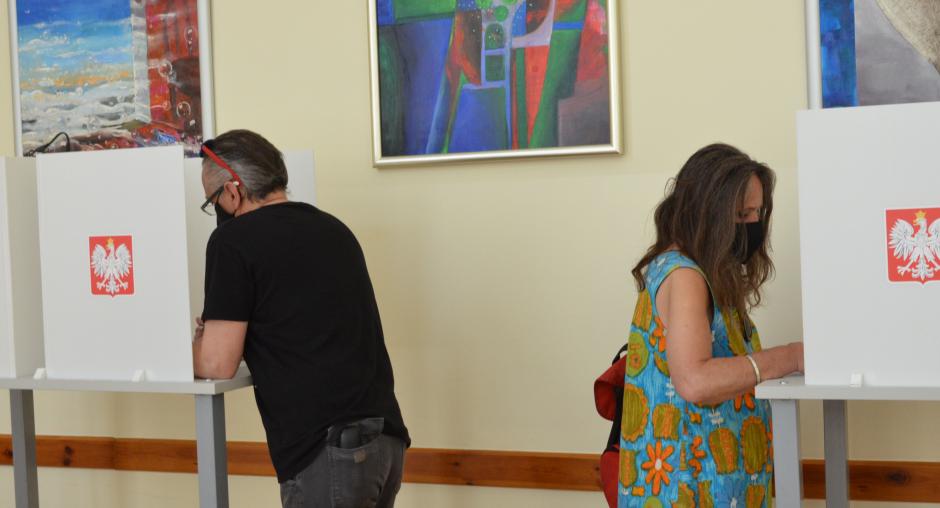Polish presidential election managed well despite legal uncertainties, but intolerance and public media bias tarnished campaign, international observers say

WARSAW, 29 June 2020 – Poland’s presidential election was administered professionally despite the lack of legal clarity as solutions were sought to hold the election during the COVID-19 pandemic. The campaign was characterised by intolerant rhetoric and a public broadcaster that failed in its duty to offer balanced and impartial coverage, international observers from the OSCE Office for Democratic Institutions and Human Rights (ODIHR) said in a statement today.
“We saw a first round that was professionally run even in these challenging times and in a sharply polarised political environment,” said Thomas Boserup, head of ODIHR’s special election assessment mission. “It’s clear that emotions are running high, but intolerance or media bias can never be part of a truly vibrant democracy.”
Some 30 million people were eligible to take part in yesterday’s election. The election administration met all legal deadlines and carried out its activities professionally, and procedures were followed well in the polling stations visited by the observers. Protective equipment was consistently used by both polling staff and voters. The legislation that enabled the election to take place was adopted in haste and without adequate public debate, at odds with the commitments made by all countries of the OSCE region. The changes had implications for candidate registration, campaigning and campaign finance, voting methods, and the resolution of election disputes. The way in which they were made jeopardised the stability and clarity of the legislation.
The campaign itself was characterised by negative rhetoric by the leading candidates that further aggravated the already confrontational atmosphere. Inflammatory language by the incumbent and his campaign was at times xenophobic and homophobic.
While the public broadcaster provided the legally mandated free airtime to all candidates and organised the only joint televised debate held during the campaign, this did not allow for any substantial discussion that would help voters to make an informed judgement. In the run-up to the election, the public broadcaster became a campaign tool for the incumbent, while some reporting had clear xenophobic and anti-Semitic undertones.
Despite travel and other restrictions in response to the health emergency caused by the COVID-19 pandemic, ODIHR was able to deploy a Special Election Assessment Mission (SEAM) to Poland, which took up its work on 16 June and will remain in Poland to continue its observation. The SEAM focused on issues identified by ODIHR’s needs assessment mission in order to assess the extent to which the elections were held in line with OSCE commitments and other international standards for democratic elections, as well as with national legislation.
For further information, please contact:
Katya Andrusz, ODIHR: +48 609 522 266 or katya.andrusz@odihr.pl
